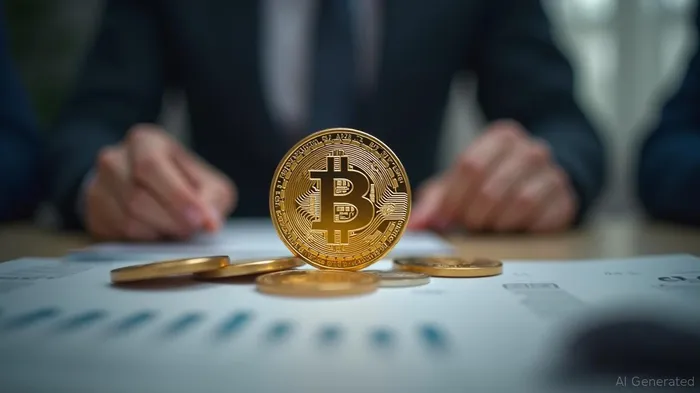SolarBank to Add Bitcoin to Reserves for Inflation Hedge
SolarBank, a Nasdaq-listed renewable energy firm, has announced its intention to integrate Bitcoin (BTC) into its reserve assets. This move marks a significant step in the institutional adoption of cryptocurrencies, reflecting a growing trend among publicly traded companies to diversify their treasury holdings to include digital assets as a hedge against inflation and market volatility.
SolarBank’s decision to add Bitcoin to its reserves underscores the broader trend of institutional adoption, focusing on inflation hedging, diversification, and strategic treasury management. By incorporating Bitcoin, SolarBankSUUN-- aims to leverage the cryptocurrency’s inflation-hedging properties and potential for long-term appreciation, positioning itself at the forefront of innovation in the renewable energy sector. This approach also reflects a nuanced understanding of Bitcoin’s role as a non-correlated asset, which can enhance portfolio resilience amid economic uncertainties.
One of the critical considerations for SolarBank is the method of Bitcoin custody. The company is exploring two primary options: utilizing Coinbase Prime, a leading institutional custodian offering robust security, compliance, and reporting services, or opting for self-custody, which provides maximum control over private keys but demands advanced technical expertise and stringent security protocols. This decision underscores the balance between operational control and risk management. Institutional custodians like Coinbase Prime reduce operational burdens and regulatory complexities, while self-custody requires in-house capabilities to mitigate risks such as theft or loss of assets.
SolarBank has not yet executed any Bitcoin purchases, emphasizing a cautious and strategic approach. The timing and scale of investment will depend on market conditions, including Bitcoin’s price volatility and liquidity considerations. Additionally, SolarBank must ensure that its digital asset allocation does not impede capital availability for core business operations and growth initiatives. Regulatory developments also play a pivotal role, as evolving frameworks could impact corporate cryptocurrency holdings. This measured strategy reflects best practices in corporate treasury management, balancing innovation with financial stability.
SolarBank’s entry into Bitcoin reserves adds momentum to the expanding institutional adoption narrative. Following pioneers like MicroStrategy and Tesla, SolarBank’s move is particularly notable given its renewable energy focus, illustrating how diverse sectors are recognizing Bitcoin’s strategic value. This trend signals increasing confidence in Bitcoin as a legitimate treasury asset, transcending its initial perception as a speculative instrument. For investors and market observers, SolarBank’s decision highlights the evolving dynamics of corporate finance and the integration of digital assets into mainstream financial strategies.
Incorporating Bitcoin into corporate reserves offers several advantages, including potential capital appreciation, inflation protection, and enhanced investor interest. However, SolarBank must navigate challenges such as Bitcoin’s inherent price volatility, regulatory uncertainties, and complex accounting treatments under current financial reporting standards. Security remains paramount, with custody solutions requiring rigorous protocols to safeguard digital assets. Moreover, public perception and stakeholder communication are critical to managing reputational risks associated with cryptocurrency investments.
SolarBank’s Bitcoin integration could enhance its appeal to innovation-focused investors and differentiate it within the renewable energy sector. This strategic diversification may also serve as a catalyst for other companies contemplating digital asset adoption, particularly those outside traditional technology or financial industries. The move reinforces Bitcoin’s maturation as a corporate treasury asset and contributes valuable data points to the ongoing institutional adoption discourse.
SolarBank’s planned inclusion of Bitcoin in its reserve assets exemplifies the growing intersection of traditional corporate finance and digital asset innovation. By carefully evaluating custody options, market timing, and regulatory factors, SolarBank demonstrates a prudent yet forward-looking approach to treasury management. This development not only positions SolarBank as a progressive player within the renewable energy sector but also underscores the broader institutional embrace of Bitcoin as a strategic reserve asset. As the digital asset landscape evolves, SolarBank’s move offers insightful lessons for companies and investors navigating this transformative financial frontier.

Quickly understand the history and background of various well-known coins
Latest Articles
Stay ahead of the market.
Get curated U.S. market news, insights and key dates delivered to your inbox.

Comments
No comments yet